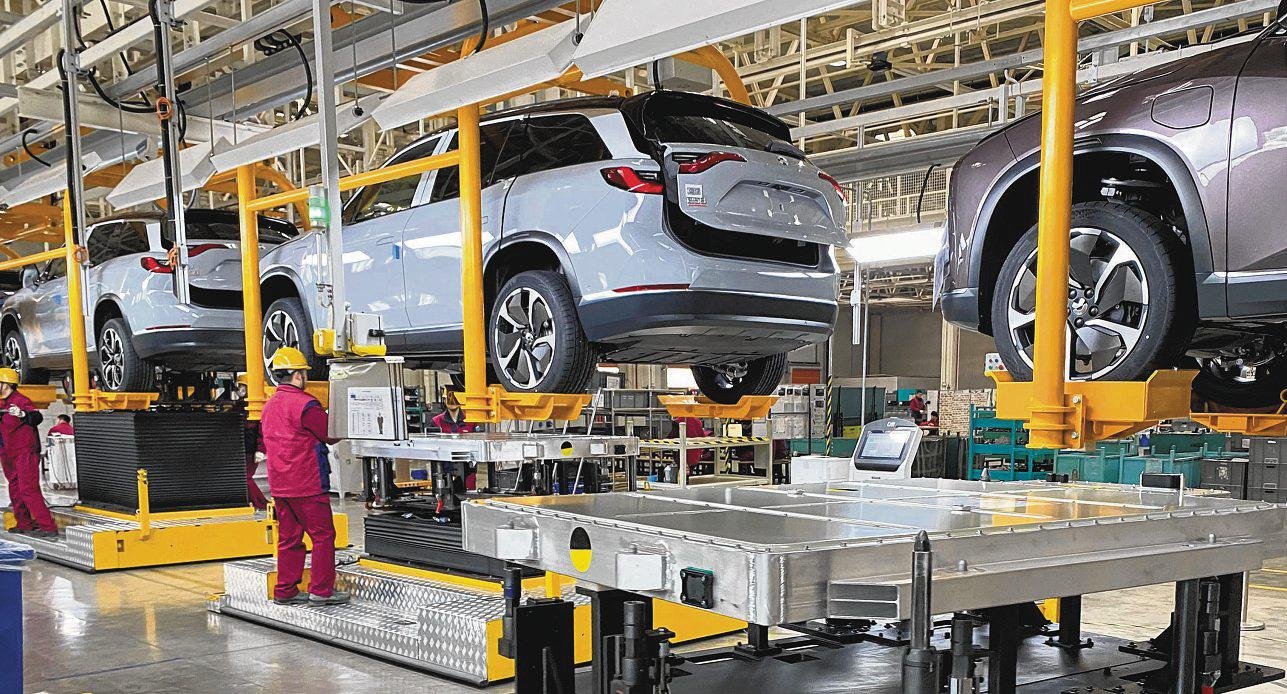Grasping the Purposes for the Boycott
The approaching prohibition on Chinese innovation in U.S. vehicles is driven by a conjunction of public safety concerns, information protection issues, and raising international pressures. Chief among these reasons is the increased apprehension about surveillance. The U.S. government has communicated worries that coordinating Chinese tech into American vehicles could work with unapproved admittance to delicate data. This worry is especially articulated with regards to trend setting innovations, for example, independent driving frameworks and associated vehicle organizations, which depend intensely on information transmission and capacity.
Information security is another basic variable impacting the expected boycott. Vehicles today are not simply methods of transport; they are progressively furnished with modern sensors and availability includes that gather tremendous measures of individual information from clients. There is a developing disquiet that Chinese tech firms could take advantage of this information for insight purposes or that it very well may be misused, jeopardizing buyer security. The chance of unfamiliar substances getting to these information streams raises huge warnings with respect to the classification and trustworthiness of individual data.
The international scene has additionally muddled the circumstance. Pressures between the U.S. what’s more, China have been raising, set apart by profession debates, common freedoms concerns, and military showdowns in different areas. This scenery improves the earnestness of laying out a reasonable limit around basic framework and innovation, eventually highlighting the requirement for nations to keep up with command over their mechanical biological systems. Reliance on unfamiliar innovation, especially from countries saw as foes, represents a gamble to public interests and financial sway. Thus, the drive to defend American innovation and reestablish trust in the auto production network has picked up speed, provoking conversations about expanding the homegrown tech scene.
Influence on the Car Business
The approaching prohibition on Chinese innovation in U.S. vehicles is ready to make huge repercussions for the car business. American makers, as well as providers that depend vigorously on Chinese parts, may confront broad disturbances underway. The reliance on Chinese innovation has empowered U.S. automakers to create vehicles proficiently, consolidating progressed frameworks like independent driving elements and complex infotainment. With this boycott, the progression of these fundamental innovations will be intruded, compelling organizations to reconsider their creation lines.
Also, the shortfall of Chinese tech could prompt inflated costs. Organizations should source options, which not exclusively might be more costly yet could likewise be less cutting-edge, temporarily. This shift could prompt higher buyer costs as makers look to alleviate rising functional expenses. Moreover, the criticalness to find elective arrangements might redirect assets from progressing undertakings and advancement endeavors, possibly dialing back development.
On the other hand, this situation could likewise catalyze a rush of development inside the homegrown car area. As producers are constrained to turn away from dependence on Chinese innovation, there is a chance for advancement of local arrangements. Organizations might put all the more vigorously in innovative work to make new other options and possibly upgrade their strategic advantage. This could cultivate a cutthroat scene that focuses on U.S.- made innovations, consequently encouraging nearby ability and working on public monetary strength.
All in all, while the restriction on Chinese innovation represents a few difficulties for the auto business in the U.S., it likewise presents a chance for development and rebuilding. Organizations should adjust strongly to the developing scene to keep up with their market position and guarantee long haul outcome in an evolving climate.
Shopper Ramifications of the Boycott
The possible restriction on Chinese innovation in U.S. vehicles could have huge repercussions for purchasers, especially concerning estimating, elements, and generally speaking vehicle execution. As auto producers progressively depend on refined advances from China, confining admittance to these parts could prompt higher assembling costs. Thus, this expansion underway costs could mean higher vehicle costs for purchasers, restricting reasonableness and possibly obliging purchaser choices in the auto market.
As well as evaluating difficulties, purchasers may likewise confront a decrease in the accessibility of cutting edge includes that have become ordinary in current vehicles. Large numbers of these improvements, including driver-help advances and infotainment frameworks, frequently consolidate Chinese tech. If U.S. automakers turn to obtaining parts locally or from elective global providers, the presentation and execution of specific highlights could be postponed, accordingly influencing the general driving experience. This change might prompt vehicles without a capacities that purchasers have generally expected.
Additionally, the effect of the boycott could reach out to vehicle execution and security. Cutting edge innovations assume a critical part in working on the two viewpoints, implying that the expulsion of excellent Chinese parts could prompt less modern frameworks. This could lessen the dependability and security guidelines of impacted vehicles, raising worries among purchasers with respect to their auto decisions.
Further, the push for American-made innovation might move purchaser inclinations. As the car scene adjusts to these changes, shoppers could float towards brands underscoring locally obtained tech, possibly reshaping brand dependability simultaneously. By and large, the implications of a restriction on Chinese innovation in U.S. vehicles will request cautious thought from shoppers and producers the same as they arrange an undeniably intricate car climate.
Fate of U.S.- China Relations in the Tech Space
The approaching prohibition on Chinese innovation inside U.S. vehicles implies a basic crossroads in the more extensive system of U.S.- China relations, especially inside the mechanical circle. This move serves not just as an action to shield public safety yet additionally mirrors an escalating pattern towards decoupling in innovation supply chains between the two countries. The U.S. government’s activities demonstrate a change in strategy that focuses on homegrown assembling and supply freedom over dependence on unfamiliar innovation.
This decoupling is supposed to have critical repercussions on the elements of worldwide innovation exchange. By confining Chinese tech organizations’ support in basic areas, for example, auto development, the US may unintentionally encourage more prominent cooperation inside its own tech industry. American firms could speed up endeavors to create and execute advancements that were already dependent on Chinese parts or programming, subsequently improving public skills and advancing local arrangements.
Additionally, this break in relations could prompt expanded pressures in political collaborations between the U.S. furthermore, China. It flags a potential for retaliatory measures from China, which could additionally strain reciprocal arrangements and confuse worldwide exchange rehearses. The resistance in innovation influences the car area as well as can reach out to media communications, computerized reasoning, and then some. Such a situation could bring about a divided market where U.S. firms center solely around homegrown inventory chains, restricting Chinese interest and cultivating a climate ready for advancement inside the U.S.
Looking forward, it is pivotal to break down whether this pattern will prompt more prominent joint effort among U.S. tech organizations, as they might combine efforts to propel advancement and contend all the more really on the worldwide stage. As the international scene advances, understanding the ramifications of these limitations will be crucial for industry partners and policymakers the same.

